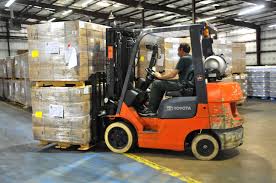If you pay attention to the news lately, it seems like everyone is into robotics. Many of Google’s recent acquisitions of robotics firms, including Boston Dynamics—along with Amazon’s preview of its proposed drone delivery system—both made headlines, causing stocks of other robotics firms such as iRobot to soar as much as 20 percent. With these two main players directly involved in this industry, it seems that robots will soon take over everything, including our jobs.
While total robot domination might be a fine theme for a sci-fi film, the reality is that robots—like those found in Amazon’s own automated warehouse—will take over a number of low-level positions. However, robots will also play a major role in creating new, interesting and innovative jobs that are much better suited for the tech-savvy generation.
Every day, on Amazon, and factories and warehouses around the world, robots perform tasks we don’t even think about. Most of these tasks are tedious, repetitive, and require little or no skill—work that is done by humans has a much higher turnover rate than more interesting jobs. In addition, robotic tasks often require heavy lifting which, when performed repeatedly by humans, can lead to repetitive stress-type injuries. As Aldo Zini, CEO of Aethon, a maker of robots designed to perform basic tasks in hospitals, says, “Robots are replacing jobs people don’t want to do and shouldn’t be doing.”
Apart from Robotics
In examining the effects of robotics on mobile workers, it is important to consider the impact other technological advances have on the workforce. One prominent example is the invention of the tractor. Before the introduction of tractors to American agriculture about one hundred years ago, approximately 70 percent of all US workers were employed in agriculture. Today that figure has shrunk to just 2 percent. While those statistics might lead some to conclude that tractors are a job killer for the economy, the opposite is true. In response to tractor distractions about how to do things—agriculture is now more efficient—the workforce adapts and evolves in new directions. While some jobs were initially eliminated, new jobs emerged and US agricultural prosperity continued.
IFR Research
Earlier this year the International Robotics Federation (IFR) published some interesting research on the future impact of robotics on the job market. The study entitled “Positive Impact of Industrial Robots on Employment” claims that over the next eight years more than two million jobs will be created because of the robotics industry. In support of these findings, Gudrun Litzenberger, General Secretary of the IFR stated the following: “Our study proves that robots create jobs. Robotics and automation is the solution. Certain jobs can be reduced by robotics and animation, but this research highlights that more jobs are being created.”
Of course the claims of this research could be said to reflect the bias of an organization that somehow represents the robot industry. However, it is clear that, until robots are able to build, program, install, and maintain themselves—something many in the Artificial Intelligence (AI) field believe one day—the field of robotics will continue to provide millions of engagements and fulfilling jobs for many years. which will come.








